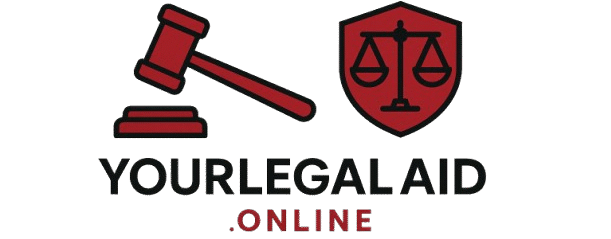In today’s complex and fast-moving world, there are situations when a person cannot be physically present to manage their financial, legal, or personal affairs. In such cases, a Power of Attorney (POA) becomes a useful and powerful legal tool. It allows one person to authorize another to act on their behalf. Whether it’s selling property, managing bank accounts, or making medical decisions, a power of attorney can ensure smooth handling of affairs.
What is a Power of Attorney?
A Power of Attorney (POA) is a legal document that gives one person (known as the agent or attorney-in-fact) the authority to act on behalf of another person (known as the principal or grantor) in specific matters.
This authority can be broad or limited, temporary or permanent, depending on the needs of the principal. The person granting the power must be mentally competent at the time of creating the POA.
Why is Power of Attorney Important?
- Convenience: Helps manage affairs during absence, travel, illness, or old age.
- Emergency Situations: Allows someone to step in quickly if the principal is incapacitated.
- Legal Validity: Authorizes the agent to sign documents and make decisions with binding effect.
- Estate Planning Tool: Often part of broader legal and financial planning strategies.
Main Types of Power of Attorney
There are several types of Power of Attorney, each serving different purposes:
1. General Power of Attorney (GPA)
This grants broad powers to the agent to act on behalf of the principal in various matters such as:
- Managing bank accounts
- Selling or renting property
- Filing taxes
- Signing legal documents
Use: Useful when someone is traveling abroad or physically unable to manage affairs. However, it becomes invalid if the principal becomes mentally incapacitated.
2. Special or Limited Power of Attorney
This type of POA restricts the agent’s authority to specific acts or transactions. For example:
- Selling a particular property
- Handling a single business deal
- Representing in a court case
Use: Ideal when the principal wants to give limited authority for a particular task and time frame.
3. Durable Power of Attorney
Unlike a general POA, a Durable POA continues to remain valid even if the principal becomes mentally incapacitated due to illness, accident, or old age.
Use: Common in medical and financial planning for elderly individuals or those with degenerative conditions.
Key Feature: The POA document must state that it is to remain valid even after incapacity.
4. Springing Power of Attorney
This POA “springs” into action only upon the occurrence of a specific event—typically the principal’s incapacity or a defined future date.
Use: Offers protection, as the agent gains control only when needed.
Note: It may require a doctor’s certificate or medical opinion to prove incapacity before it becomes effective, which could delay decisions in emergencies.
5. Medical Power of Attorney (Health Care POA)
This type authorizes an agent to make healthcare decisions on behalf of the principal if they are unconscious, mentally unfit, or otherwise unable to communicate.
Use: Commonly used in end-of-life care planning or during critical medical procedures.
Common Uses of Power of Attorney
- Real Estate Transactions: Authorize someone to buy, sell, lease, or register property.
- Banking and Finance: Handle deposits, withdrawals, investments, and tax filings.
- Legal Representation: Attend court proceedings or sign legal documents.
- Business Management: Run a business or execute contracts.
- Healthcare Decisions: In emergencies, authorize treatment or medical procedures.
Execution of Power of Attorney
To make a Power of Attorney legally valid:
- Draft the Document: Clearly mention the powers granted, scope, time duration, and parties involved.
- Signatures: The principal must sign the document in the presence of witnesses.
- Attestation/Notarization:
- In India: A POA should ideally be notarized and sometimes registered, especially in property matters.
- In other countries: Requirements vary; some may need a notary, lawyer, or even court registration.
- Stamp Duty: Pay appropriate stamp duty as per local laws.
- Revocation Clause: Clearly mention how and when the POA can be revoked.
Revoking a Power of Attorney
The principal can revoke or cancel a POA at any time by:
- Issuing a revocation notice in writing
- Informing the agent and third parties involved
- Registering the revocation (if the original POA was registered)
A POA also ends automatically if:
- The purpose is fulfilled
- The principal dies or becomes incapacitated (unless it’s a durable POA)
- The agent dies or becomes incompetent
Risks and Precautions
While a POA is convenient, it comes with responsibilities and risks:
- Misuse of Power: An agent could misuse authority for personal gain.
- Lack of Oversight: If not monitored, agents can make decisions that harm the principal.
- Legal Disputes: Improper drafting can lead to confusion or challenges in court.
Tips:
- Appoint someone trustworthy.
- Define clear limits.
- Review regularly.
- Consult a legal professional for drafting.
Conclusion
A Power of Attorney is a powerful and flexible legal tool that can offer peace of mind in managing your affairs. Whether you’re planning for emergencies, managing property remotely, or assisting elderly family members, a POA allows someone you trust to act in your best interests. However, because of its importance and potential risks, it should always be created thoughtfully, with proper legal guidance and clear terms.
